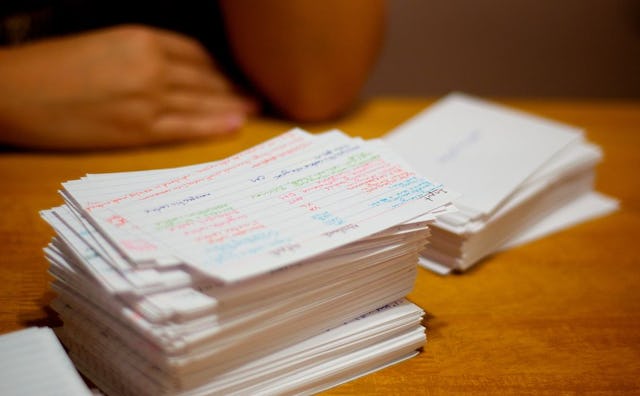7 Things Your SAT Tutor Wishes You Knew

1. If I walk into your house and see five TVs, your kid is not going to do well on the SAT. I tutored standardized tests and academic subjects in New York City for six years. When I arrived at a new house, no matter how swank, if there were multiple televisions and no books, I knew it was going to be a hard row to hoe. (Conversely, if I arrived at an apartment and it was lined with bookshelves, I breathed a sigh of relief.) Five TVs and no books indicate your family values, and words definitely aren’t one of your values. That’s going to make the verbal section of the SAT pretty hard on your kid. Language skills are cumulative, and 18 sessions with a tutor—no matter how expensive the tutor is, no matter if the tutor herself went to Princeton or Harvard, no matter what test-taking tricks she can impart—are not going to make up for a lifetime of not reading.
2. If your house is wildly chaotic, don’t be surprised when your kid struggles to learn anything new. I saw 15-18 students a week, all in their homes. The kids who did well on homework and standardized tests had quiet places to work and were uninterrupted during study time. It seems absurdly obvious to say this, but a lot of parents don’t realize how much they themselves are contributing to a noisy, chaotic atmosphere: phones ringing, Jets games blaring, dogs barking, siblings conversing in the hall, Mom knocking on the door several times in one session to ask various questions about dinner preferences. Combine that with the kid’s own distractions—IMs blooping, text messages pinging—and students can’t get five minutes of peace to work through a complex algebra problem. There’s no learning happening there, there’s just me explaining the Pythagorean theorem over and over again after each interruption. Which is like some kind of curse from a Greek myth.
3. You don’t want a tutor with less than two years’ experience. It took me two years to design my lesson plans in a way that made sense to most kids, with enough alternate lesson plans to whip out for the kids who were still struggling. In year one I had one method of teaching, say, functions—and I was not super confident in that one method. By year three I’d made worksheets for probably six ways to teach functions and identified the four or five “types” of function problems that appear on the SAT, so I could group them in my lesson plans. It took me two years to get my teaching methods plentiful and flexible enough to deal with kids at all learning stages. I suspect this is true for teachers too, though that’s a topic for another day.
A 16-year-old leaking tears as I try to explain a reading passage is not learning anything. If your kid just can’t manage it, listen to him.
4. If your kid has terrible manners I’m not going to try very hard. In my early days of tutoring, I would cheerfully tap-dance around rude kids—kids who would fold their arms and refuse to answer any questions, kids who screamed at me, kids who angrily chucked books across their rec rooms because they didn’t understand that hope is the thing with feathers. After a while I would go through my lesson by rote, not particularly caring if the student understood or not. We were both just running out the clock. (For what it’s worth, I worked for a company that would not permit me to decline or quit a student.)
5. Your kid is going to get into college. In six years of tutoring dozens of students a semester, I didn’t have a single student who didn’t get into college. There are a lot of colleges in the world. There’s one that will be right for your kid, so just scratch that worry off your list of worries.
6. If your kid is weeping when I walk in the door, it’s not going to be a productive session. If your child is enrolled in a high-pressure school, SAT tutoring might be the straw that breaks the camel’s back. It’s true that you’re going to pay me even if you cancel the session, but a 16-year-old leaking tears as I try to explain a reading passage is not learning anything. If your kid just can’t manage it, listen to him. It’s not productive for me to be handing tissues to a sobbing child and saying earnestly, “So what do you think Sojourner Truth is on about? Ain’t she a woman? Do you need another Kleenex?”
7. There are more important things in the world than SAT tutoring. I can’t count how many students I had who had cancelled their piano lessons or after-school clubs to fit in our sessions. When I started tutoring, I expected to see kids six or seven times to go over a few practice tests. I was surprised—and disheartened—to find that many parents expected our sessions to go on for a year or more. I saw one kid weekly for two and a half years. Pro tip: There’s only so much improvement one can see on the SAT, anyway; the kid tutored for a year isn’t necessarily going to do any better than if he’d been tutored for six weeks. Don’t let the race to college so consume your family that you set aside other fun, recreational and enriching activities. It’s just the SAT.
This article was originally published on